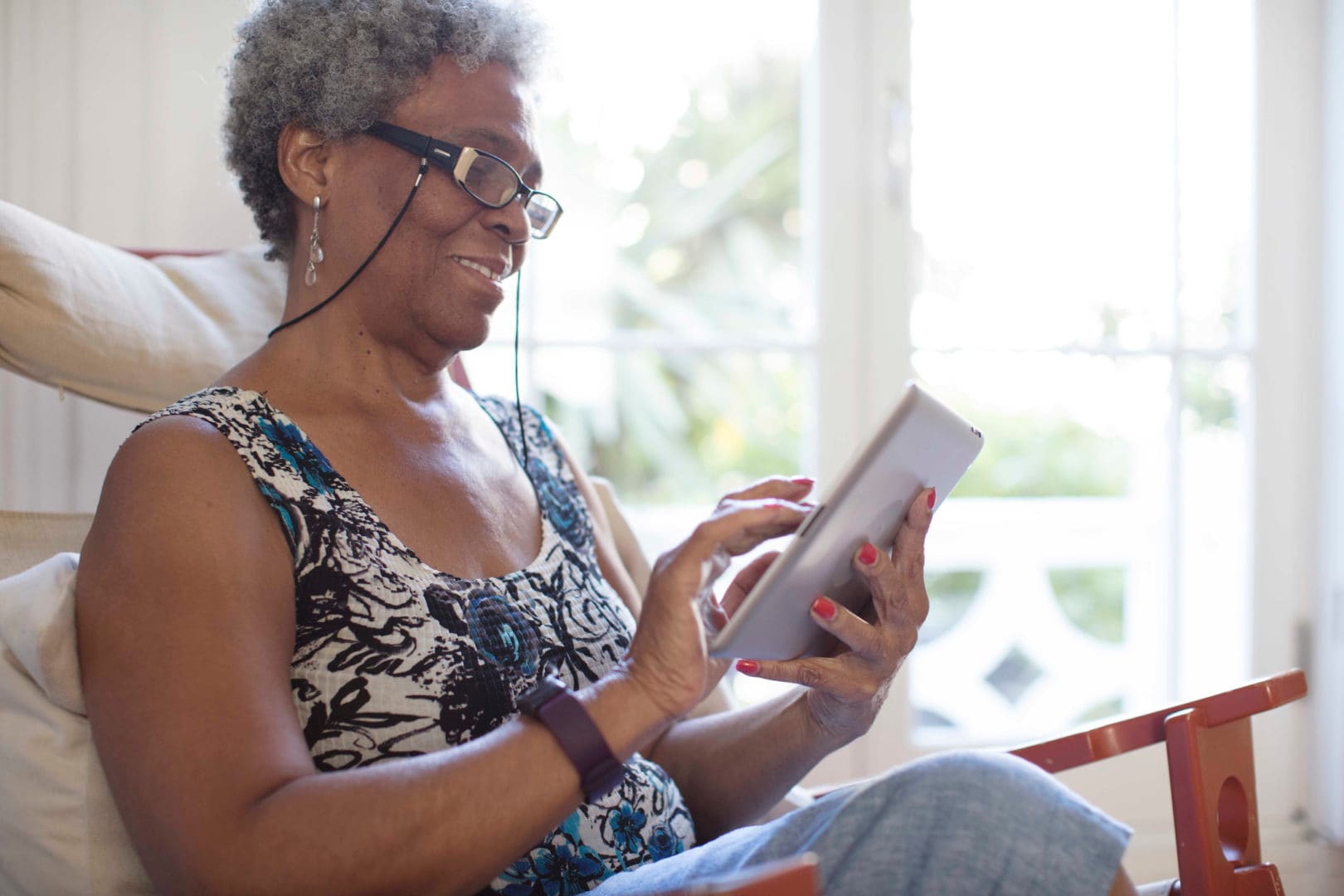Anyone who has cared for a senior with dementia and its accompanying negative moods — from confusion to anger, sadness to apathy — has probably wished they could flick a magic wand and turn that mood around, STAT.
Researchers at the University of Wisconsin-Madison School of Pharmacy and Generation Connect, a company that develops mobile software for use in home care, may have found a solution that’s almost that simple: screen time. Specifically, screen time spent looking at photos, listening to music or watching videos on YouTube improved the moods of half of care recipients in the pilot study. Researchers see the intervention as a promising alternative to prescribing dementia sufferers antidepressants.
How the research was done
The research, conducted between 2017 and 2018, involved Generation Connect staff training caregivers to develop personalized tablet sessions for their patients.
“The personalized experience involves the family providing insights into what the patient likes, [such as] big band music, and custom content related to this topic is pushed to the tablet for the caregiver to use when interacting with the care recipient,” says study author Jay Ford, a professor in the pharmacy school’s Social Sciences division.
Caregivers rated their care recipients’ moods before and after the sessions, of which there were more than 1,000 total. The sessions took place in either patients’ or caregivers’ private homes or skilled nursing facilities, and then the researchers analyzed the data from Generation Connect.
According to a press release on the study, the interventions were designed to benefit patients with dementia, but the study group did not include only those patients who suffer from memory loss. Others had movement or communication disorders, for instance.
Given that it was a preliminary study, the research also had its limitations: There was no control group participating in non-tablet interventions, caregivers only reported on mood (versus additional information, like the session duration) and patients weren’t tracked over time to see if extended use of tablets improved their average mood.
What the study found
- The vast majority of care recipients benefited from tablet sessions. The two types of entertainment that had the best result were music and YouTube, which were “strongly associated with improving or maintaining positive moods.” They also found that combined strategies — like playing music, followed by looking at family photos — was associated with positive moods, but strictly playing games was not.
- Patients who lived in nursing facilities enjoyed the most significant mood boost, but they also started out in a more negative mood than home care patients. Researchers note that they were twice as likely to be in negative moods before using the tablets versus the patients who were in home care. “Eighty-eight percent of care recipients in skilled nursing facilities began the tablet engagement session in a negative mood, compared to 40% in home care,” says co-author Aaron Gilson, a health policy research scientist within the UW School of Pharmacy. “Further research is needed to find out why these differences are occurring.”
- The sessions improved caregivers’ moods, as well. Researchers talked to a subset of caregivers who said the tablet sessions improved their work days. The effect was strongest when caregivers felt like the sessions improved the moods of their care recipients.
The bottom line
Researchers are heartened to see that this non-pharmacological, “tailorable technology” intervention could improve the lives of patients and their caregivers.
“The technology resulted in improved patient moods, and as such, these mood changes may impact caregiver turnover and burnout,” Ford says. “However, further research is required.”





